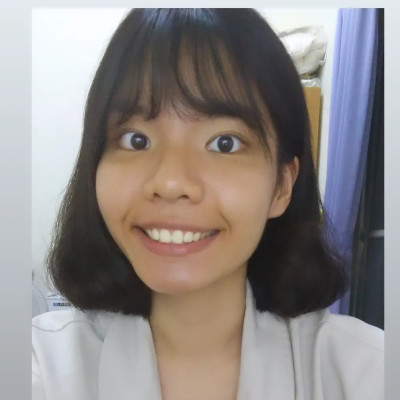Sessions / Location Name: Room 1
Location not set by organizers
Location:
Building: Conference Building < 富山大学 (University of Toyama, Gofuku Campus)
Exercise, Nutrition, and Sleep: The Knowledge and Practices of Japanese University Students #3922
There is a growing awareness among organizations around the world of the need to consider the whole person since, among others benefits, healthy individuals are more positive, productive, and successful. The global pandemic over the past three years has accelerated this process, bringing health concerns to the forefront. While both health awareness and healthy lifestyle practices have proven to be difference makers when confronting viruses, Japanese universities do little to support their students on these two fronts. This study investigates students’ basic knowledge and practices surrounding the three main pillars of health: physical activity, nutrition, and sleep. Ninety first-year undergraduate students voluntarily participated in this study, answering a questionnaire related to their general health knowledge and current habits. The results paint a complex picture of a student body with inconsistent and often misdirected health knowledge and practices. Though currently underrepresented, research in this area will contribute to a shift towards healthier universities, both literally and figuratively. Since classrooms are not populated by disembodied minds, but by complex physical systems, a better understanding of student health has implications for every aspect of education, from motivation to performance to enrollment. This presentation is intended for educators who want to better understand their students, and who want to help those students become the best possible versions of themselves. To this end, the presentation will discuss the implications of this research for teachers, including how they can design interventions based on its findings.
Expanding speaking tasks with genre-based approaches #3925
Oral communication classes often focus on a limited number of tasks - namely conversation and presentation. These are important, but in this short workshop the presenter will introduce a three-step approach (modelling and analysis, production, assessment and feedback) which enables teachers and learners to look beyond traditional classroom activities towards a broader range of speaking activities. These include anecdotes, TED talks, news reports and many more.
Genres are communicative events, distinguished by communicative purpose, structure, style, content, and intended audience (Swales, 1990). Further more, genres are "structured in predictable ways.... purposeful, socially situated, and culturally sanctioned" (Thornbury, 2005: 121). The genre-based approach suggests explicit modelling of the scripts and behaviours common to language event types, and yet most oral communication classes in Japanese universities focus on a limited number of spoken genres; namely general conversation, and quasi-academic presentation or debate. In this short workshop, the presenter will describe how to expand the range of genres accessed by learners by outlining a three-step cycle for teaching spoken genres. First, in ANALYSIS, the learners examine the purpose and structure of a specific genre, the linguistic (and non-verbal) features which support the achievement of purpose. Next the learners move to the PRODUCTION stage, in which they attempt to replicate an example of the genre, moving from scaffolded production towards independence. The final stage is ASSESSMENT, in which teachers and learners negotiate a rubric to evaluate the level of achievement. The presenter will illustrate the process using 'the anecdote' as an example genre, and will also provide materials for such diverse genres as 'soap opera', 'TED talk', 'instructional video', 'news report', 'job interview' and beyond.
The Power of Student-Teacher Bonds in Japanese Tertiary Education #3908
This presentation elucidates the paramount significance of student teacher relationships in the educational landscape, with a keen focus on TESOL (Teaching English to Speakers of Other Languages) settings. Rooted in robust theoretical foundations such as Attachment Theory, Social Learning Theory, and Self- Determination Theory, we explore the multifaceted impacts of these bonds on student academic performance, well-being, and holistic development. Beyond the theoretical realm, the presentation ventures into tangible strategies for cultivating these pivotal relationships, offering educators actionable steps anchored in cultural sensitivity, active listening, feedback mechanisms, and engaging activities. We underscore the transformative potential of these strategies through compelling findings, showcasing their value in reducing behavioral issues, fostering an inclusive learning environment, and promoting lifelong learning. Emphasizing the heightened importance of these bonds in the evolving post-COVID educational terrain, particularly in TESOL contexts, the presentation concludes with a fervent call to educators worldwide to prioritize and continually nurture these invaluable relationships.
A Study on the Impact of English as a Medium of Instructions (EMI) on College English Majors in Taiwan #3929
The government of Taiwan, aiming to lift English up to join Chinese as the 2nd official language, has declared that it will be officially bilingual by 2030. Projects on English-Medium-Instructions (EMI) have been spreading out and practiced in classrooms, and colleges in Taiwan are no exception. This study investigated the impact of EMI on two groups of college English majors taking a sophomore-level Introduction to Linguistics course, taught by a native speaker instructor and a Taiwanese instructor during an 18-week semester. Quantitative data were collected by 3 questionnaires, examining if the students’ engagement and self-perceived language skills had changed, and further investigating their attitudes toward EMI. Qualitative data consisted of semi-structured interviews with the students and the 2 instructors. The findings showed that: (1) The EMI course conducted by the native speaker instructor was more successful in strengthening the students’ learning behaviors and enhancing in-class interactions; (2) The EMI course taught by the Taiwanese instructor leveled up the students’ enthusiasm in embracing EMI and the students tended to feel more at ease with the Taiwanese instructor because the instructor had a better understanding in choosing materials and designing class activities tailored to meet the students’ English fluency. (3) Both student groups indicated that EMI had helped most in improving their listening comprehension, wiliness to communicate, and concentration to stay focused in class. This study calls for a bigger scale study to examine the impact of EMI on EFL learners in colleges of Taiwan, and possibly at schools of all levels.
Investigating the Rubric for a Writing Class Using Multi Facets Rasch Analysis #3918
Analytical rubrics that use several categories, for example, ‘Use of grammar’ or ‘Punctuation’, are commonly employed. Nevertheless, rubric validity is a common concern. A rubric used in a coordinated writing program at a large university in Western Japan was investigated for validity. Five raters evaluated first and second drafts of student essays (N = 14). The raters’ scores were analyzed with MultiFacets Rasch software. They were then asked to explain ratings in interviews. Rasch analysis showed that raters’ scores as not being very consistent with the overall model. Of the five raters, two had acceptable in-fit mean squares (1.05 and 0.79), and three did not (0.55, 1.37, and 0.35). Additionally, the categories of ‘Topic Sentence’ and ‘Language / Format’ showed rater bias in the case of three out of the five raters (18 and 26 instances, respectively). In the interviews, the raters expressed diverging ideas of what constituted an effective topic sentence and of what degree of lexical / grammatical error was still intelligible. The Program Coordinators had been somewhat doubtful about this rubric. Due to these doubts, reinforced by this study’s findings, they agreed to work towards the creation of a new rubric.
Group Emotions - What are they and why do they matter? #3930
While research on emotions has been a prominent area in applied linguistics research, especially at the tertiary level, only recently has inquiry into emotions taken a social turn. With the recently growing emphasis on positive psychology and teacher well-being, understanding how emotions are shared within a class is an important endeavor. Group emotions have been studied in organizational science, sociology, and psychology, but have been largely ignored in SLA research (Menges & Kilduff, 2015). Group emotion, or group affect, is represented by both the characteristics of the group acting upon emotions of individuals, and from individuals' emotional states and how they affect the overall group (Barsade & Gibson, 1998). This presentation will synthesize the literature related to the social context of emotions, group interactions, and group emotions as they may pertain to language classrooms. In addition, the presenter will introduce how understanding group emotions may lead to success in the language classroom, as well as when learners enter the workforce. Implications will be made as to how these may affect teacher well-being as well as directions for future research on this topic.
Exploring Reflective Use of AI Assistance for Improving Writing Skills #3910
This reflective teaching presentation describes a preliminary exploration of integrating generative AI (ChatGPT) into an L2 English academic writing course at a Japanese national university. Seventeen students drafted 5-paragraph essays, received feedback and revisions from ChatGPT, then analyzed the differences between their original and the AI-corrected writing. This presentation describes the process used to enhance student comprehension of structural elements, grammar, vocabulary, argument development, and clarity, responding to calls to ethically empower students to engage with generative AI technology (Mhlanga, 2023; Zhai, 2022). The presentation draws on examples of students’ initial writing, the ChatGPT feedback and recommended revisions, as well as student questionnaires exploring their impressions of the intervention and teacher reflections on it. Additionally, comparisons of students’ writing before and after revisions will be shared, along with preliminary discussion of students’ and the teacher’s impressions of the application of ChatGPT and the activities used. Overall, students appreciated ChatGPT's ability to refine their essays and improve their writing while emphasizing that active student teacher collaboration remains important. Attendees will leave with practical insights and ideas to enhance their teaching practices, foster student growth, and embrace the potential of AI as a tool for academic success while remaining mindful of potential pitfalls.
How to Deal With People Who Are Getting on Your Last Nerve #3901
Despite—or more likely because of—how much we care about and enjoy our jobs, the college or university workplace can be a stressful place. This stress can be a result of or compounded by environmental factors such as power imbalances between curriculum designers and classroom teachers, cultural miscommunications between teachers and admin staff, gaslighting co-workers, and the ever-present job insecurity that dogs a majority of college and university instructors. Not surprisingly, tempers can fray and conflict with students, administration staff, and other teachers may ensue. In this presentation, I ask if anger is ever justified in a college or university context, where an ethos of professionalism seems to outlaw any emotional response, especially negative ones. After a brief introduction to the insights on anger (and if and when it is justifiable) offered by ancient philosophy via the modern Swiss/Britsih philosopher Alain de Botton, I will discuss some conflict resolution strategies and how they can be used in and outside the classroom. Throughout the presentation, the audience will be encouraged to share their own experiences, insights, and tips for dealing with conflict in the workplace.
Still CLIL: A Language Teacher’s Reflection on a Decade of CLIL Practice #3904
CLIL (Content and Language Integrated Leaning) is an approach in which authentic, meaningful academic content is taught in connection with language. The two components are, as the name states, integrated. Neither is possible without the other, although one may take priority at certain times, depending upon students’ needs. This presentation draws upon a decade of experience in planning and teaching CLIL and CLIL-based courses in subjects such as environmental studies, gender issues, health and wellness, and intercultural communication. After a brief review of the speaker’s 2016 presentation and onCUE Journal article, specific examples of syllabuses, activities, and materials will be shared (Aoki, 2016, pp. 93-100). Special emphasis will be given to demonstrating how academic subjects can be selected and scaffolded, even for students with a wide range of language skill levels. Finally, the unique skill set which trained, experienced language teachers bring to the CLIL classroom will be explained, and current and future directions in CLIL will be discussed, especially the importance of globalization, sustainability, and social justice, which the presenter considers crucial for education in the 21st century.
The Relationship between learner proficiency and formulaic language use #3919
Lexical phrases, defined here as multi-word units (MWEs) used to organize text, provide the glue that holds learner essays together. These discourse marking phrases and other formulaic language have been shown to be particularly challenging to learners even at the highest levels (ciation). This presentation will discuss the results of an analysis of learners’ use of lexical phrases in essays and the relationship between MWE use and proficiency level.
Lower-level learner writing has rarely been examined in the context of learner corpus research nor has an attempt been made to determine a profile of lexical phrase use for learners at different proficiency levels. As such, the research discussed here sought to determine the relationship between learners’ use of lexical phrases in their writing and their proficiency level as determined by the 1) their performance on the TOEFL and 2) their essay grades.
The results indicated that lower-level learners used more lexical phrases to scaffold their writing. In early submissions, lower-level learners used a greater range of phrases as well, however this trend reversed with later submissions. Higher-level learners generally used phrases more appropriately.










